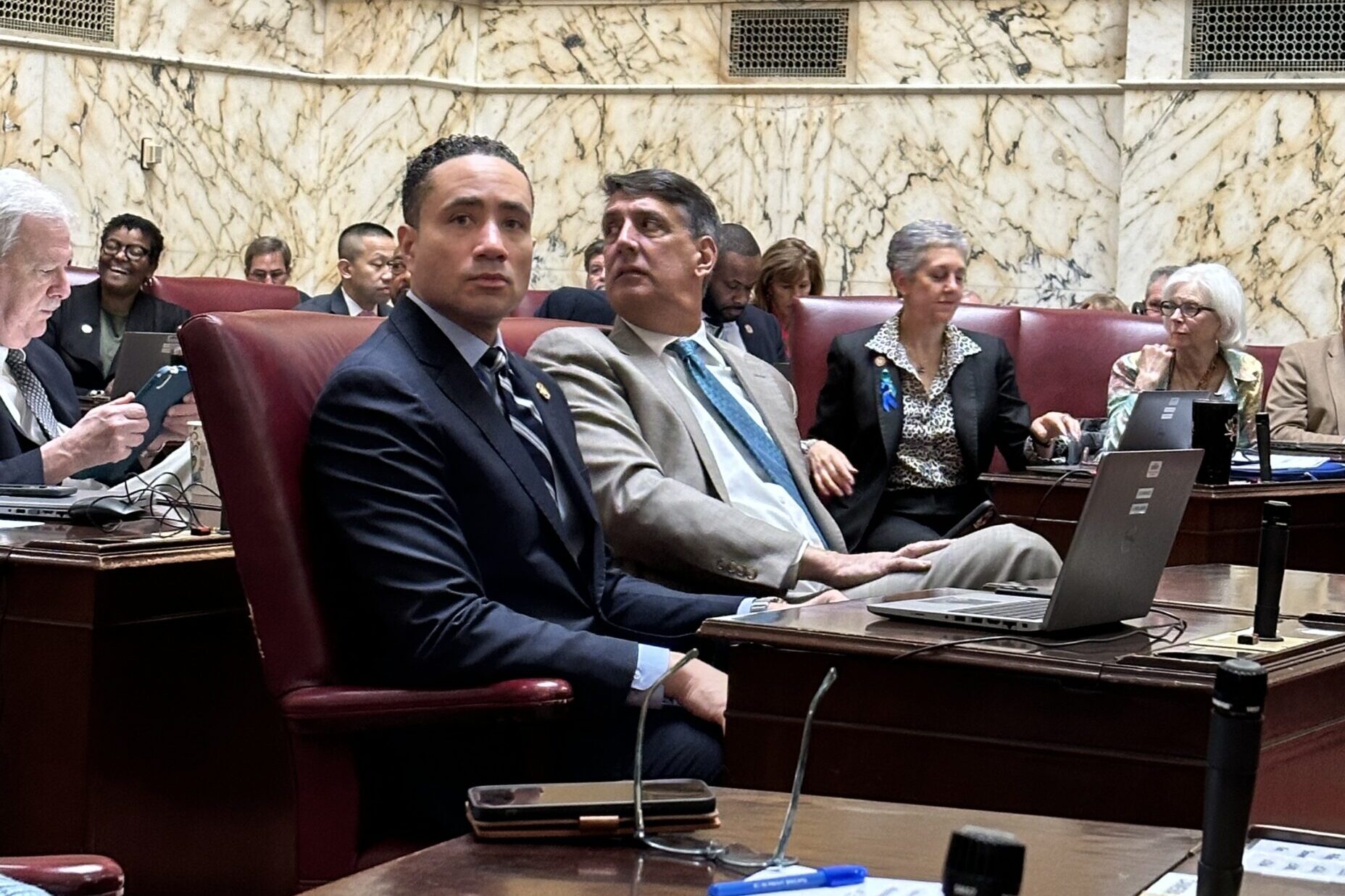ANNAPOLIS, Md.–Democratic leaders are “very close” to agreement on adjustments to their controversial juvenile justice bill, including changes to the list of crimes that should qualify children ages 10 through 12 for delinquency jurisdiction, a key lawmaker said Thursday.
Sen. Will Smith (D-Montgomery) said discussions on the bill are “still an iterative process,” but that the bill’s architects plan to limit under-13 jurisdiction to regulated firearms violations and third-degree sex offenses. An earlier version of the bill included auto thefts, among other crimes.
In addition, Smith said, leaders are also looking at changes to improve the process for referring young people to rehabilitation services, through what is known as the “Child in Need of Supervision” petition.
“It’s to hold the entire system accountable and to ensure that youth get the support and the treatment that they need,” Smith told Capital News Service in an interview Thursday afternoon.
Democratic leaders have been negotiating behind the scenes as they try to reconcile their initial proposal, introduced in January, with testimony and data pouring in from prosecutors, public defenders, victims and youth advocates.
Now, after months of briefings and hours of testimony in House and Senate committees, they are closing in on an amended bill that will present their refined plan for holding young people, as well as adults in government, accountable for youth rehabilitation.
Whatever they may ultimately pass will be an update to the Juvenile Justice Reform Act, approved by Maryland lawmakers in 2022 to protect the rights of children and improve their chances at turning their lives around.
Currently, lawmakers are negotiating a “more prescriptive and clear” Child in Need of Supervision process, which would unfold in court and create a paper trail rather than being handled informally by the Juvenile Services department.
“We’re trying to make sure that there’s an actual more formalized, universal application of CINS across the state,” Smith said.
Another change they are considering has to do with what happens when a young person fails to show up for two or more rehabilitation treatment appointments.
“You can have probation extended if you miss treatment,” Smith said, “but you cannot be incarcerated.”
In addition, he said, public defenders pointed out that many young people under 13 aren’t competent to stand trial, and they aren’t getting rehabilitation services during the time when they are working to gain that competency.
“There are no services provided while that process is happening,” he said. “And this whole thing is about getting kids and families services and supports.”
The lawmakers have also been looking at data in their deliberations, especially about which crimes have spiked among young offenders, Smith said. That data is guiding decisions about expanded jurisdiction and other matters.
In addition to data, hearings in February brought emotional testimony into the spotlight.
Some lawmakers questioned whether the January proposal went too far to reverse the reform measures – and whether it was overly influenced by media accounts and public perception that youth crime is out of control.
“During the hearing, I kept asking, where’s the data?” said Sen. Charles Sydnor, D-Baltimore County. “At times, we’ve allowed the media to drive our policy, and we’re supposed to be data-driven. So show me the data.”
Children under 13 accounted for less than 3.5% of all Juvenile Services intakes during the latest fiscal year for offenses the January proposal wanted to add, including deadly weapon, handgun, motor vehicle theft and misdemeanor sex offenses.That’s down from 6.5% the year before reforms went into effect, according to a racial equity impact note released Tuesday by the Department of Legislative Services.
“Everyone agrees that auto thefts are up for adults and juveniles,” said Sen. Jill Carter, D-Baltimore City. “But the issue is that kids 12 and under doing it is miniscule.”
Amid assertions that the bill would worsen racial inequality in Maryland’s juvenile justice system, some witnesses speaking in support of the January bill have pointed out that youth crime also victimizes communities of color.
Baltimore Deputy District Public Defender Alycia Capozello said in one recent hearing that the original proposal would disproportionately punish “little boys of color who historically have been adultified.”
Gordon Pack, who spent almost 43 years in prison after being tried as an adult when he was 15, said he thinks lawmakers should build up the state’s offerings of rehabilitative services and treatments before putting more kids into formal involvement with the juvenile justice system.
“All they’re trying to do is equip law enforcement with another tool to address things, and they want to think that law enforcement will take the best tool in that situation,” Pack said. “And this is how we’re supposed to think. If you’re a legislator, you’re supposed to think like that.”
Still, Pack said he thought lawmakers were moving too fast with the initial version of the bill.
“I think,” he said, “they’ve got to be cautious.”

